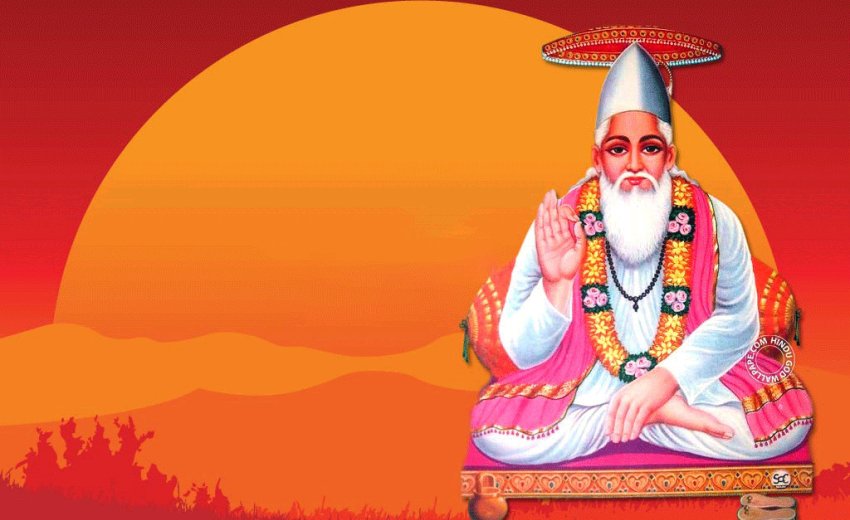Bhagat Kabir holds the distinction of being the most widely quoted author and mystical poet in India. Despite being a Muslim, his verses have been included in the Guru Granth Sahib, the sacred scripture of Sikhism. In fact, the Guru Granth Sahib contains over 500 verses attributed to Kabir, making it the largest non-Sikh contribution. As one of the notable saints of the medieval Bhakti and Sufi movement in India, Kabir's compositions hold a significant place in the Guru Granth Sahib, with 227 padas in 17 ragas and 237 shlokas attributed to him.
Kabir is revered as a spiritual master by Muslims, Sufis, Hindus, and Sikhs, despite his critical stance towards religious sects. He was born in 1398 AD and was brought up in Varanasi, India, by Muslim parents. At a young age, Kabir became a disciple of the renowned Hindu saint Ramananda. It was highly unusual for a Hindu master to accept a Muslim student, but legend has it that the resourceful Kabir found a clever solution to overcome this sectarian issue.
There was a special day that arrived once a year. It was a day when anyone could potentially become a disciple of a revered master simply by having the master speak the name of God over him.
On this momentous day, Satguru Ramananda followed his customary path to the Ganges for his early morning bath, just like he did every day. As he went down the steps, preparing to immerse himself in the holy waters, out of nowhere, a tiny hand suddenly darted forth, firmly clasping the saint's ankle. Startled by this unexpected touch, the Guru cried out the name of God. Gazing downward, the great master's eyes met the sight of the child Kabir, whose hand had reached out to him. Filled with a profound sense of connection, Ramananda adopted Kabir as his son and devoted disciple, taking him back to his ashram amidst the protests of his Hindu students, some of whom chose to part ways.
Legend has it that this encounter held profound magic, for it was only after Kabir's enlightenment that Ramananda, his teacher, spiritual father, and guru, became enlightened himself.
The mystic's purpose is to connect with the Divine and then share their wisdom with others, guiding them on how it can be done.
Kabir never turned away from worldly life. He chose to embrace both the roles of a householder and a mystic, balancing his existence as a tradesman and a deep thinker. He experienced the joys of marriage, had children, and earned his living as a weaver.
While Kabir dedicated a significant part of his life to bringing together followers of Islam and Hinduism, he felt deep disgust towards fake religious devotion and was repelled by organized religion. He fearlessly expressed his thoughts, which resulted in him facing persecution from religious authorities. Due to his open criticism of established and popular religions, Kabir became a target of both Hindus and Muslims in and around Benaras. He fearlessly spoke the truth, which led to animosity from Hindu Pandits and Muslim Quazis (priests of both religions). As a result, when Sikander Lodhi arrived in Kabir's town, he faced numerous humiliations instigated by the leaders of both religious groups. At the age of 60, this gentle soul was denounced to the king. Fortunately, because of his Muslim background, he was spared execution and instead was forced to leave his homeland.
He emphasized the equality and fraternity of all mankind. This shabad by Bhagat Kabir in Raag Parbhati is on Ang 1349 of Sri Guru Granth Sahib.
ਅਵਲਿ ਅਲਹ ਨੂਰੁ ਉਪਾਇਆ ਕੁਦਰਤਿ ਕੇ ਸਭ ਬੰਦੇ ॥
Aval Aleh Noor Oupaaeiaa Kudharath Kae Sabh Bandhae ||
First, Allah created the Light; then, by His Creative Power, He made all mortal beings.
ਏਕ ਨੂਰ ਤੇ ਸਭੁ ਜਗੁ ਉਪਜਿਆ ਕਉਨ ਭਲੇ ਕੋ ਮੰਦੇ ॥੧॥
Eaek Noor Thae Sabh Jag Oupajiaa Koun Bhalae Ko Mandhae ||1||
From the One Light, the entire universe welled up. So who is good, and who is bad? ||1||
Let these words of Bhagat Kabir resonate within our hearts, reminding us of the universal truth that we are all one. May they inspire us to cultivate love, compassion, and break down the barriers that separate us. Let us strive to see beyond differences and foster a world where unity and love prevail.

